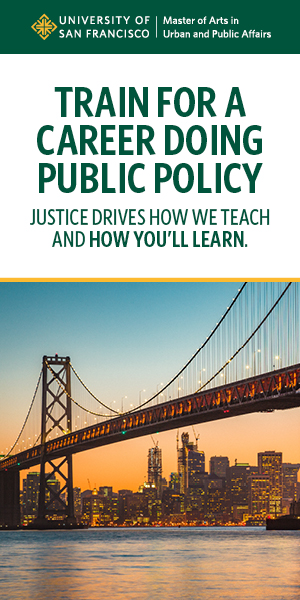Sup. Scott Wiener wants to put the city into a new era of reliable, fast transit. So which developers and speculators will he force to pay for it?

By Tim Redmond
SEPTEMBER 9, 2015 – Imagine if San Francisco had transportation planning 70 years ago that envisioned a city where cars weren’t the dominant mode of travel. There might still be a train line on the Bay Bridge (and we might still have a vibrant port). And we might have a real subway system, like the major East Coast cities (New York, Philly, DC) do.
Subways make sense in cities – trains that run below the streets don’t have to deal with traffic. That’s why I can take BART (designed not as a city system but as a regional transit system that only serves small parts of SF) from 24th St to downtown in less than ten minutes, while Muni takes at least half an hour to run the same distance.
So I am happy that Sup. Scott Wiener, who is a big transit advocate, is proposing that the city adopt a subway plan and that we think big and look at ways to radically expand the underground transit system.
San Francisco, he wrote recently, should always be building a subway.
Yes. Correct. Problem is, the rich people in San Francisco are unwilling to do what it takes to pay for that – and neither, as far as I can tell, is Wiener.
His argument sounds not only good but ambitious and bold:
Yes, revolutionizing our transit systems will be hard and expensive. Yes, there will be political and funding fights with the forces (both local and beyond) that couldn’t care less about funding good transit. Yes, there will be ups and downs over this lengthy process. Yet, with a forward-thinking, aggressive, can-do attitude — the same attitude that got us the interstate highway system, the Golden Gate Bridge, BART, and the world’s great subway systems — we can get it done.
Yes we can. I agree.
But since the feds and the state (as Wiener admits) aren’t going to put up the money, how is San Francisco going to pay for this? Saying it’s “hard and expensive” isn’t enough; you need to come up with a plan for the cash.
And we can do that. San Francisco is right now among the richest cities in the history of the world. There’s plenty of money to pay for robust transit.
But you have to be willing to ask the people who are making all the money to pay their share.
And that’s where Wiener’s talk becomes empty. He’s already proposing a transit impact fee that lets developers escape vast sums of money they ought to be paying for the impact of their projects. If the out-of-town speculators who are seeing a modern gold rush, extracting vast sums of capital from this city, can’t be forced to pay for a transit system, who will?
New York has it easier – that city can raise taxes, and San Francisco, thanks to Prop. 13, pretty much can’t. But we can at least say: If you are going to profit off the growth of the city, you need to pay for the costs of that growth.
Or you can say: Unless the developers are willing to pay the costs of adding 100,000 more people to SF, we simply can’t afford to take that population increase.
Because the current residents, who can barely pay the rent, are in no position to fund multiples of billions of dollars in new subways.
By Tim Redmond
SEPTEMBER 9, 2015 – Imagine if San Francisco had transportation planning 70 years ago that envisioned a city where cars weren’t the dominant mode of travel. There might still be a train line on the Bay Bridge (and we might still have a vibrant port). And we might have a real subway system, like the major East Coast cities (New York, Philly, DC) do.
Subways make sense in cities – trains that run below the streets don’t have to deal with traffic. That’s why I can take BART (designed not as a city system but as a regional transit system that only serves small parts of SF) from 24th St to downtown in less than ten minutes, while Muni takes at least half an hour to run the same distance.
So I am happy that Sup. Scott Wiener, who is a big transit advocate, is proposing that the city adopt a subway plan and that we think big and look at ways to radically expand the underground transit system.
San Francisco, he wrote recently, should always be building a subway.
Yes. Correct. Problem is, San Francisco is unwilling to do what it takes to pay for that – and neither, as far as I can tell, is Wiener.
His argument sounds not only good but ambitious and bold:
Yes, revolutionizing our transit systems will be hard and expensive. Yes, there will be political and funding fights with the forces (both local and beyond) that couldn’t care less about funding good transit. Yes, there will be ups and downs over this lengthy process. Yet, with a forward-thinking, aggressive, can-do attitude — the same attitude that got us the interstate highway system, the Golden Gate Bridge, BART, and the world’s great subway systems — we can get it done.
Yes we can. I agree.
But since the feds and the state (as Wiener admits) aren’t going to put up the money, how is San Francisco going to pay for this? Saying it’s “hard and expensive” isn’t enough; you need to come up with a plan for the cash.
And we can do that. San Francisco is right now among the richest cities in the history of the world. There’s plenty of money to pay for robust transit.
But you have to be willing to ask the people who are making all the money to pay their share.
And that’s where Wiener’s talk becomes empty. He’s already proposing a transit impact fee that lets developers escape vast sums of money they ought to be paying for the impact of their projects. If the out-of-town speculators who are seeing a modern gold rush, extracting vast sums of capital from this city, can’t be forced to pay for a transit system, who will?
New York has it easier – that city can raise taxes, and San Francisco, thanks to Prop. 13, pretty much can’t. But we can at least say: If you are going to profit off the growth of the city, you need to pay for the costs of that growth.
Or you can say: Unless the developers are willing to pay the costs of adding 100,000 more people to SF, we simply can’t afford to take that population increase.
Because the current residents, who can barely pay the rent, are in no position to fund multiples of billions of dollars in new subways.
I texted Wiener today to ask about this problem. He almost always gets back to me within a few hours. Today: Nothing.
Sup. Wiener: Please, tell me which rich people you are willing to make pay (here, with local laws and fees) to create what is a very beautiful vision of a better city. Then we can take that dream and make it real.




